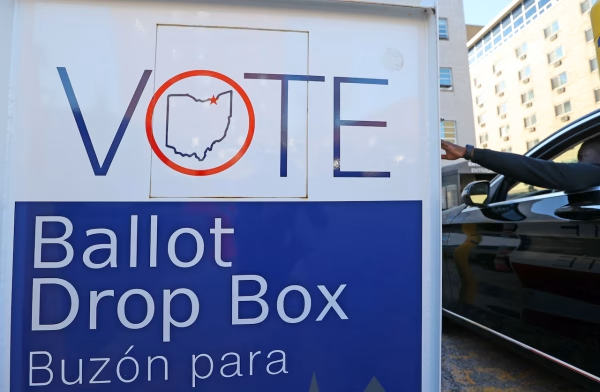ACLU Disappointed With Supreme Court's Voter ID Decision
Decision Will Harm Eligible Voters, But Leaves Door Open To Future New Legal Challenges
FOR IMMEDIATE RELEASE
CONTACT: (212) 549-2666; media@aclu.org
WASHINGTON - In a 6-3 decision, the U.S. Supreme Court today rejected a challenge to Indiana's most-restrictive-in-the-nation voter identification law. The American Civil Liberties Union's case, Crawford v. Marion County Election Board - consolidated with Indiana Democratic Party v. Rokita - is an appeal of two lower court decisions that upheld the state's law requiring voters to present government-issued photo IDs in order to vote. The ACLU argued that the Indiana law creates an unconstitutional burden on voting rights.
"Today's decision minimizes the very real burden that Indiana's voter ID law places on tens of thousands of eligible voters who lack a government-issued identification while accepting at face value Indiana's unsubstantiated claim of voter fraud," said Ken Falk, Legal Director of the ACLU of Indiana and lead counsel on the case.
In January 2007, the U.S. Court of Appeals for the Seventh Circuit in Chicago upheld Indiana's voter ID law by understating the right of every individual to vote without being subject to undue burdens imposed by the state. There is no evidence that Indiana's voter ID law is justified by any actual problem of voting fraud, which is already prohibited by various criminal statutes in the state. No cases of in-person voting fraud have been prosecuted in the state in recent history.
"We are very disappointed in today's decision, but it leaves the door open to future challenges in Indiana and elsewhere by registered voters who are denied their right to vote based on onerous and unconstitutional voter ID laws," said ACLU Legal Director Steven R. Shapiro. "We should be seeking ways to encourage more people to vote, not inventing excuses to deny citizens their constitutional voting rights."
The Supreme Court's decision on the constitutionality of voter ID laws has broad national significance with the 2008 election underway. Indiana is one of over 20 states that have passed restrictive voter ID laws, while other states are considering similar legislation. Plaintiffs in the ACLU's case include the Indianapolis branch of the NAACP as well as organizations representing the elderly, the homeless, and people with disabilities, along with two elected officials.
"As the dissent notes, Indiana's law will sadly but predictably have its greatest impact on voters who are poor, elderly, belong to racial minorities, or have disabilities," said Angela Ciccolo, Interim General Counsel with the NAACP.
Attorneys on the case, Crawford v. Marion County, are Shapiro of the national ACLU; Falk, Jacquelyn Bowie Suess and Gavin Rose of the ACLU of Indiana; Laughlin McDonald and Neil Bradley of the ACLU Voting Rights Project; Ciccolo, and Victor Goode of the national NAACP: and Pamela Karlan and Jeffrey Fisher.
For more information on this case, including legal briefs, go to www.aclu.org/ scotus/2007term/32592res20071106/ 32592res20071106.html
More information on the work of the ACLU Voting Rights Project is available at: www.aclu.org/voting-rights



